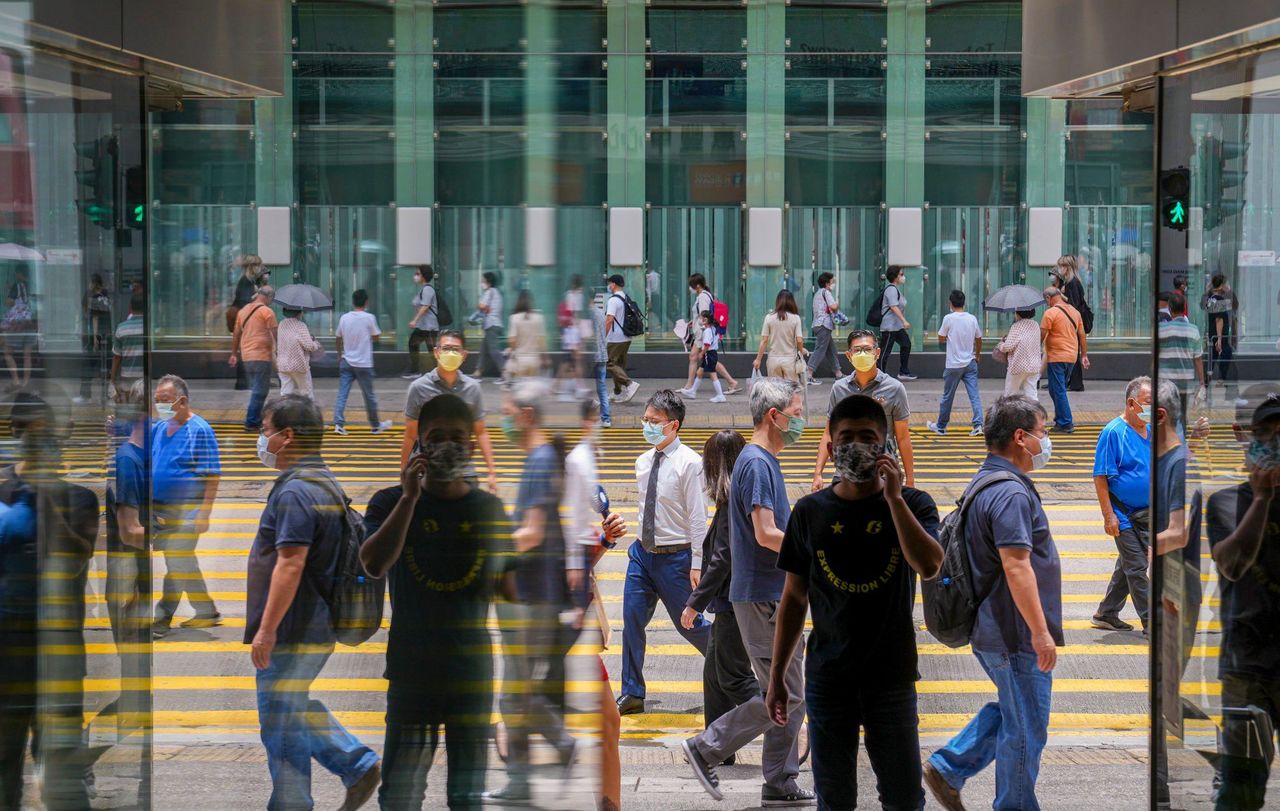Hong Kong News

John Lee’s promises could start ‘new chapter’ for Hong Kong, but can he deliver?
The annual policy statement by Hong Kong’s leaders often promises more than it delivers. Much is usually made of a dull speech depressingly devoid of substance and vision.
New Chief Executive John Lee Ka-chiu cannot be accused of that. His first policy address on Wednesday set out a panoply of new initiatives intended to start an exciting “new chapter” for the city. But setting targets is much easier than achieving them. Immense challenges lie ahead.
Hong Kong desperately needs a fresh start after three gloomy years. Civil unrest was followed by the passing of a sweeping national security law. Anti-Covid-19 measures have isolated the city from the world and taken a terrible toll on people’s lives. Residents have been leaving in droves. Policies allowing the city to move onwards and upwards are long overdue.
But while Lee’s speech sought to tackle Hong Kong’s most pressing problems, it lacked the one announcement the community was most hoping for. There was no mention of a complete lifting of Covid restrictions for arrivals in the city.
Instead, Lee stuck to the usual line about gradually relaxing measures in light of the “actual situation”. The prospect of what he described as “Hong Kong’s anti-epidemic journey” continuing, is disappointing and, for many, will overshadow everything else in his address.
But if you can get beyond that, the speech offered many plans for getting the city back on track. He signalled a landmark shift in the approach to governance. Numerous funds were set up in various areas, including one for co-investment.
 Many Hongkongers were hoping that John Lee would use his speech to
announce the lifting of Covid restrictions for arrivals in the city, but
they were left disappointed.
Many Hongkongers were hoping that John Lee would use his speech to
announce the lifting of Covid restrictions for arrivals in the city, but
they were left disappointed.
This is a departure from the traditional “big market, small government” strategy. It is likely to be controversial, but could be a necessary step allowing a more proactive role for the administration in an increasingly complex environment. It will be interesting to see how this is reconciled with Hong Kong’s adherence to free market and avowedly capitalist principles.
There was much emphasis in the address on strengthening Hong Kong’s role as an international hub. This include being a centre for finance, trade, shipping, technology, aviation, and culture.
It will be accompanied by ambitious plans for infrastructure from roads and railways to the development of vast new metropolises. These, if achieved, will transform the city.
The housing crisis was a focal point. Efforts to secure land and boost supply will be stepped up. This is much-needed. The unacceptable six year wait for public housing is to be reduced, we are told. Meanwhile, basic accommodation – “public housing lite” – will be provided for those in the queue. It will take time for these measures to take effect. But if they work, Lee will have succeeded where so many before him have failed.
One of the key features of the address was a bid to win the war on talent. The city has experienced a damaging brain drain. Lee said 140,000 people have departed the workforce in the last two years. Now, as Covid restrictions are eased, the aim is to make Hong Kong a magnet for top graduates and professionals.
New measures included a two year visa scheme allowing graduates from leading universities and high earners to seek employment in the city. Existing programmes for immigrants will be broadened and rules for hiring them relaxed. Those who buy property and become permanent residents will be rewarded with a stamp duty refund. The government intends to “trawl the world for talent”.
These initiatives will, no doubt, help. But success is more likely to depend on the recovery of Hong Kong’s economy and the availability of good job opportunities. There is intense regional competition.
Ultimately, the ability to attract people to Hong Kong will depend on whether the city is able to convince the world it is a good place to live and work. Its reputation has taken a battering in recent, troubled years.
Lee called on people to “tell good stories” about Hong Kong. The financial secretary, Paul Chan Mo-po, is to lead “Team Hong Kong” – a task force including business leaders – to travel abroad, forge connections, and rebuild the city’s image. A thousand prominent people in various fields will be sponsored to visit the city.
Hong Kong certainly needs to do more to rebuild its international reputation. Recent headlines have included the sentencing of teenagers under the national security law, the court appearance of a 90-year-old cardinal and the arrest of a harmonica player. News that quarantine for arrivals had ended served to remind people of the restrictions that remain.
The city has many good stories to tell. Lee highlighted some of them. Low taxes, low crime rate, beautiful country parks, the blending of cultures and proximity to the mainland. But the stories we tell must be credible, complete, and in context. This will involve officials conceding a few points about recent changes in Hong Kong. The usual rhetoric and propaganda will just not cut it.
Ultimately, it will be developments in Hong Kong rather than words that decide whether the city’s reputation is rebuilt.
Lee has created a vision of a vibrant, open, diverse, inclusive, modern and dynamic city that welcomes foreigners. It is everything Hong Kong has not been during the grim years of the pandemic. Let us hope his speech provides the platform for the city to emerge from the darkness and, as he put it, to shine again.











